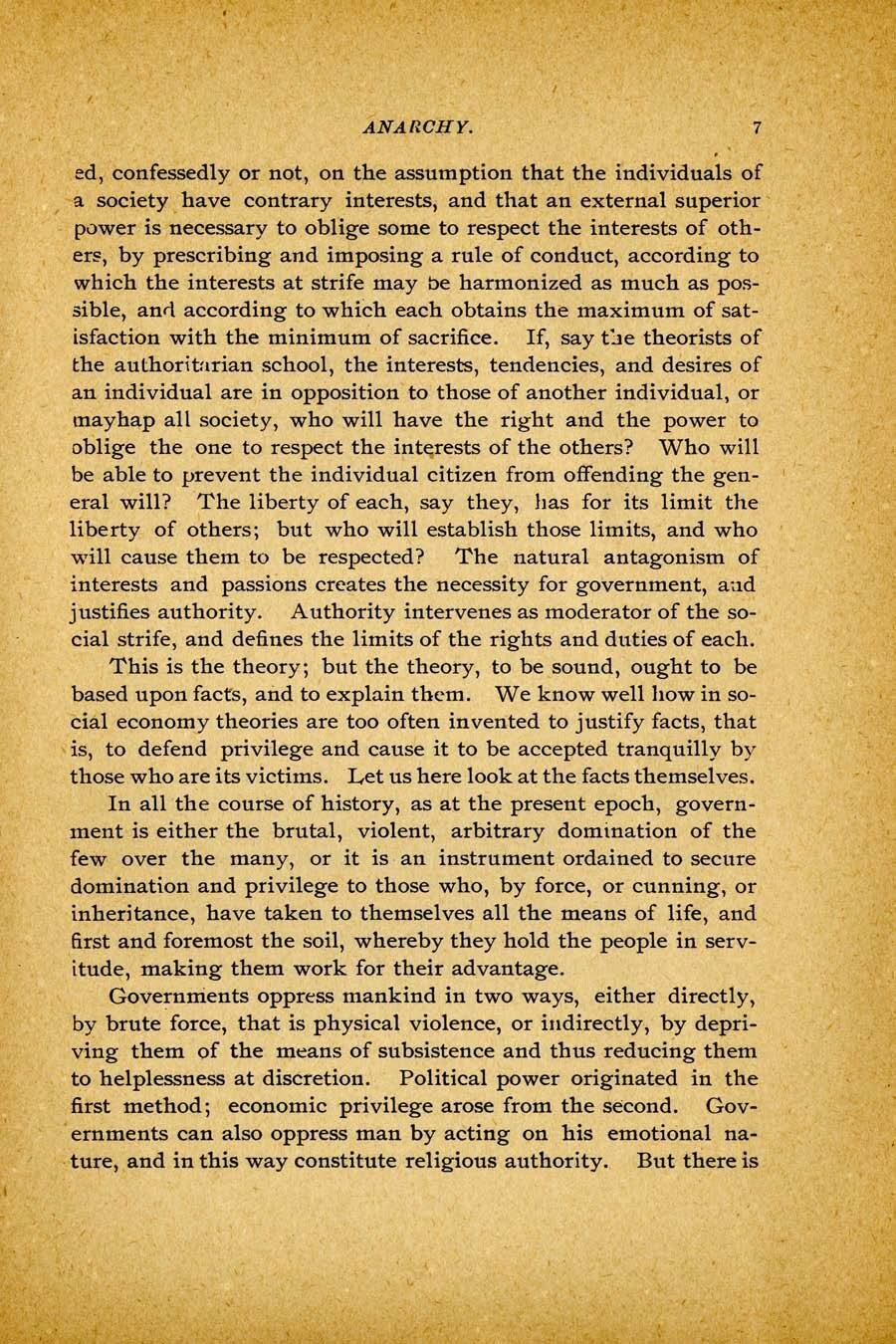ed, confessedly or not, on the assumption that the individuals of a society have contrary interests, and that an external superior power is necessary to oblige some to respect the interests of others, by prescribing and imposing a rule of conduct, according to which the interests at strife may be harmonized as much as possible, and according to which each obtains the maximum of satisfaction with the minimum of sacrifice. If, say the theorists of the authoritarian school, the interests, tendencies, and desires of an individual are in opposition to those of another individual, or mayhap all society, who will have the right and the power to oblige the one to respect the int rests of the others? Who will be able to prevent the individual citizen from offending the general will? The liberty of each, say they, has for its limit the liberty of others; but who will establish those limits, and who will cause them to be respected? The natural antagonism of interests and passions creates the necessity for government, and justifies authority. Authority intervenes as moderator of the social strife, and defines the limits of the rights and duties of each.
This is the theory; but the theory, to be sound, ought to be based upon facts, and to explain them. We know well how in social economy theories are too often invented to justify facts, that is, to defend privilege and cause it to be accepted tranquilly by those who are its victims. Let us here look at the facts themselves.
In all the course of history, as at the present epoch, government is either the brutal, violent, arbitrary domination of the few over the many, or it is an instrument ordained to secure domination and privilege to those who, by force, or cunning, or inheritance, have taken to themselves all the means of life, and first and foremost the soil, whereby they hold the people in servitude, making them work for their advantage.
Governments oppress mankind in two ways, either directly, by brute force, that is physical violence, or indirectly, by depriving them of the m~ans of subsistence and thus reducing them to helplessness at discretion. Political power originated in the first method; economic privilege arose from the second. Governments can also oppress man by acting on his emotional nature, and in this way constitute religious authority. But there is
